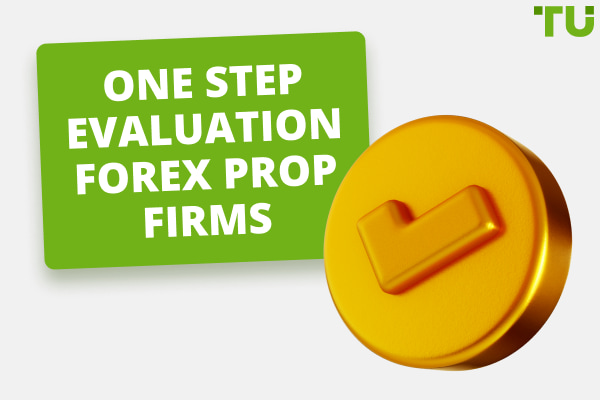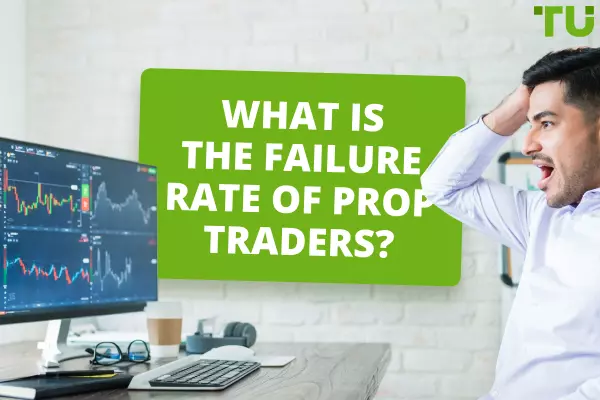Top 9 Tips For Successful Prop Trading Interview
To prepare for a proprietary trading firm interview, open a trading account and have some practice, research the firm's trading strategies, understand market trends, practice problem-solving skills, and have a clear understanding of your trading experience and strategies.
Preparing for a proprietary trading firm interview is crucial, given the competitive nature of the role. Interviewers typically scrutinize candidates for their logical thinking, problem-solving abilities, creativity, and risk management acumen. To help aspiring traders succeed, the forthcoming article by Traders Union will unveil essential insights and key points to focus on during the interview process.
Fund your account with Topstep!What are prop trading firms requirements?
Also, you need to be prepared that prop firms typically maintain diverse prerequisites contingent on their business models and trading strategies. These qualifications are not universally mandatory and can indeed vary from one proprietary trading firm to another.
Typical qualifications for a prop trading role encompass:
-
A bachelor's degree in finance, economics, mathematics, or a related field is frequently mandatory, although some firms may favor candidates with advanced degrees. Trading is increasingly becoming algorithmic, making strong mathematical and often programming knowledge essential. However, some companies still favor traditional manual trading methods
-
Depending on the firm's specialization and traded products, certifications (such as Series 7 and Series 63 in the United States, or their international counterparts) may be obligatory for regulatory compliance
-
Some prop trading firms may stipulate traders to contribute their own capital to the trading desk, serving as a testament to their commitment and risk-sharing willingness
-
An evident track record of profitable trading, whether in personal accounts or previous trading roles, confers a substantial advantage
Top 9 tips for successful prop trading interview
There isn't a one-size-fits-all set of interview questions for prop trading jobs since each position requires unique skills and qualifications. However, you can structure your preparation around some universal principles. For instance, having a personal trading account with a positive track record is a significant advantage, so consider opening an account to gain practical experience with different trading strategies and emphasize strong risk management practices. Expect questions about your trading strategies and risk management rules. In addition, prop trading interviews often gauge your ability to solve arithmetic problems quickly and assess your creativity. You might be asked about your favorite trading books and more. With these considerations in mind, here are 9 tips for interview preparation:
-
1
Start by trading in your personal account to build a track record. This demonstrates your ability to manage real money successfully and shows consistency in your trading decisions. A strong track record instills confidence in potential employers, highlighting your practical experience. A trading portfolio that demonstrates your ability to consistently generate profits and, equally importantly, your commitment to capital preservation can outweigh many other shortcomings. It's not always about achieving exceptional percentage gains; what truly matters is your stability and prudent approach to risk management
-
2
Successful traders prioritize risk management. During the interview, emphasize your commitment to protecting capital while seeking profitable opportunities. Be prepared to articulate your trading rules succinctly and confidently during the interview
-
3
Practice solving arithmetic and quantitative problems swiftly. Trading often involves making split-second decisions, so being quick and accurate in your problem-solving is vital. Use practice problems to improve your analytical thinking
-
4
Trading sometimes requires thinking outside the box. Be ready to share innovative solutions to complex trading challenges. Your ability to adapt and think creatively can set you apart as a valuable asset to the firm
-
5
Read many trading books. Discussing your favorite trading books demonstrates your commitment to learning and improvement. Highlight books that have influenced your trading philosophy or provided valuable insights into the financial markets
-
6
Deepen your understanding of the markets you aim to trade. Research market trends, historical data, and current events. Be prepared to discuss specific market dynamics and potential trading opportunities during the interview
-
7
High-pressure situations are common in trading. Practice maintaining composure and clarity during stressful scenarios. Showcase your ability to handle fast-moving markets and make rational decisions
-
8
Demonstrate active listening skills by attentively engaging with the interviewer's questions and comments. Show that you're receptive to feedback and willing to adapt your responses based on the conversation. This highlights your ability to collaborate and learn within a team-oriented trading environment
-
9
Prepare thoughtful questions about the firm's trading strategies, risk management procedures, and company culture. Asking insightful questions shows your genuine interest in the role and your commitment to making an informed decision about joining the firm
These tips encompass both the technical and soft skills necessary for a successful proprietary trading interview. By diligently preparing in these areas, you can demonstrate your qualifications and suitability for a trading position in a competitive and demanding industry.
Best Prop trading firms
FAQs
How should I prepare for an interview with a prop trading firm?
To prepare effectively, open a trading account and have some practice, research the firm's trading strategies, understand market trends, practice problem-solving skills, and have a clear understanding of your trading experience and strategies.
What types of questions can I expect in a prop trading firm interview?
Expect questions about your trading experience, risk management, analytical skills, and how you adapt to changing market conditions. Be ready to discuss your trading strategies and specific market knowledge.
Is technical expertise essential for a prop trading interview?
While technical skills are valuable, prop trading firms also assess your ability to adapt, think creatively, and demonstrate strong problem-solving skills. Practical trading experience and risk management knowledge are crucial.
How can I demonstrate my interest in a prop trading career during the interview?
Show your passion for trading by discussing your trading track record, risk management approach, and how you stay informed about market developments. Highlight your commitment to continuous learning and improvement in the field.
Glossary for novice traders
-
1
Broker
A broker is a legal entity or individual that performs as an intermediary when making trades in the financial markets. Private investors cannot trade without a broker, since only brokers can execute trades on the exchanges.
-
2
Trading
Trading involves the act of buying and selling financial assets like stocks, currencies, or commodities with the intention of profiting from market price fluctuations. Traders employ various strategies, analysis techniques, and risk management practices to make informed decisions and optimize their chances of success in the financial markets.
-
3
Prop trading
Proprietary trading (prop trading) is a financial trading strategy where a financial firm or institution uses its own capital to trade in various financial markets, such as stocks, bonds, commodities, or derivatives, with the aim of generating profits for the company itself. Prop traders typically do not trade on behalf of clients but instead trade with the firm's money, taking on the associated risks and rewards.
-
4
Risk Management
Risk management is a risk management model that involves controlling potential losses while maximizing profits. The main risk management tools are stop loss, take profit, calculation of position volume taking into account leverage and pip value.
-
5
Leverage
Forex leverage is a tool enabling traders to control larger positions with a relatively small amount of capital, amplifying potential profits and losses based on the chosen leverage ratio.
Team that worked on the article
Andrey Mastykin is an experienced author, editor, and content strategist who has been with Traders Union since 2020. As an editor, he is meticulous about fact-checking and ensuring the accuracy of all information published on the Traders Union platform. Andrey focuses on educating readers about the potential rewards and risks involved in trading financial markets.
He firmly believes that passive investing is a more suitable strategy for most individuals. Andrey's conservative approach and focus on risk management resonate with many readers, making him a trusted source of financial information.
Dr. BJ Johnson is a PhD in English Language and an editor with over 15 years of experience. He earned his degree in English Language in the U.S and the UK. In 2020, Dr. Johnson joined the Traders Union team. Since then, he has created over 100 exclusive articles and edited over 300 articles of other authors.
Mirjan Hipolito is a journalist and news editor at Traders Union. She is an expert crypto writer with five years of experience in the financial markets. Her specialties are daily market news, price predictions, and Initial Coin Offerings (ICO).
















